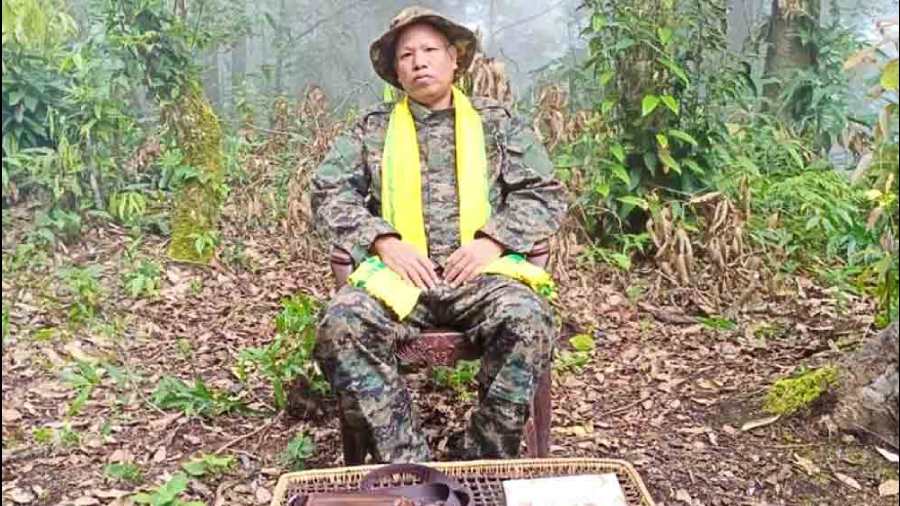The security establishment in north Bengal and northeast India was abuzz with rumours on Saturday that Jeevan Singha, the selfstyled chief of Kamtapur Liberation Organisation (KLO), has entered India with some armed cadres from his hideout in Myanmar for direct peace talks with the Centre.
Though there was no official confirmation of his arrival to India from the neighbouring country, where he has been in exile for several years, multiple sources in the state and central intelligence agencies said Singha was back in India.
“Singha, along with his associates, surrendered before the Indian security forces and he would be taken to Delhi soon for the peace talks,” said a source.
In December 2021, Himanta Biswa Sarma, the chief minister of Assam, sent a missive to the proscribed outfit to join the peace talks with the Centre. Multiple sources in Guwahati said that after several rounds of negotiations, Singha agreed to the proposal and issued a press release in which he mentioned his willingness to return to India and take part in the dialogue.
“He had mentioned that the negotiations reached the final stage, and now, there are reports that he has entered India through Nagaland,” said a source.
Singha, a.k.a. Tamir Das, is from Kumargram block of Alipurduar. Back in 1995, he formed the outfit that got involved in a number of terrorist activities in the region to press for its demand for the Kamtapur state. Thousands of Rajbanshi youths, an ethnic community of the region whose members consider themselves as sons of the soil, from north Bengal joined his outfit.
From the late 1990s, when the KLO operatives got involved in militant activities in Bengal, insurgents often used to disappear in the dense forests in neighbouring Bhutan. Some used to take refuge in Bangladesh as the Bangladesh Nationalist Party-led government looked the other way.
The situation began changing in early 2004 when the Royal Bhutan Army launched Operation Flush Out to drive away Indian terrorist groups, including the KLO which had camped in Bhutan. The Sheikh Hasina government, which came to power in 2008, also drove out Indian insurgent groups like KLO, which had made the diplomatic Gulshan area in Dhaka as their hideout.
The hot pursuit against the terrorist outfits in the two countries resulted in the disintegration of KLO as most of the cadres either surrendered or were arrested and handed over to India.
Singha had, however, managed to escape, and after spending some time in Bangladesh, he sneaked into Myanmar. He has been trying to regroup the organisation with the statehood call from Myanmar for the last few years.
“The Bengal government has been proactive against the KLO for the last few years and a number of KLO militants and linkmen were nabbed by the special task force,” said a source.
Sources said that Singha — despite his bravado-laced video messages — went on the back foot because of the aggressive approach of the Bengal government.
“He had no option but to accept Biswa Sarma’s call to join the peace talks. He also named five persons, including three former militants, to act as mediators to facilitate the talks,” said a source.
Former police officers, who had worked in north Bengal when KLO was active in the region, said that if the news of Singha’s return to India is true, it is indeed a major development.
There was, however, confusion over the proposed peace talks and the modalities involved.
In the past year or so, as KLO inched closer to the talks, questions were raised as to whether such talks can be effective without including the Bengal government.
Time and again, chief minister Mamata Banerjee has made it clear that her government was very strict in dealing with such outfits. It was evident in 2021 when the state registered a case under UAPA against Singha after he called Mamata an “outsider”.










